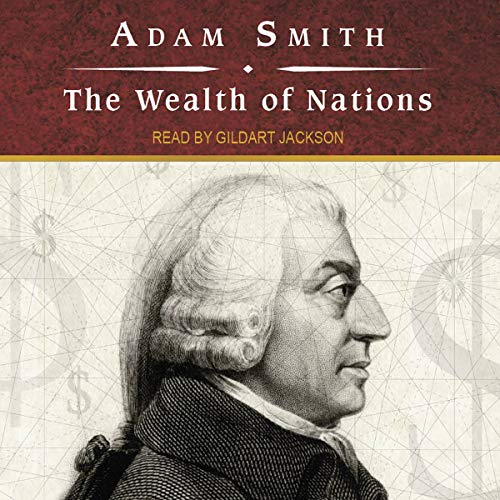
$0$25.79
First Responders
By Ben S. Bernanke - editor, Timothy F. Geithner - editor, Henry M. Paulson Jr. - editor, J. Nellie Liang - editor
Narrated by Christopher Grove
Length 21hr 06min 00s
How to listen for free?3.6
First Responders summary & excerpts
through fiscal and monetary stimulus. It wasn't a smooth or mistake-free process. As already noted, the U.S. government did not have the powers it needed to fight the panic until it was well underway. Nor was there an established playbook for an emergency like this. Things got very dark before Congress agreed to provide new, essential authorities, but ultimately it did. In the end, a collaborative effort by two successive presidents of opposing parties, a politically divided Congress, the Federal Reserve, the Treasury Department, the Federal Deposit Insurance Corporation, and thousands of dedicated public servants at a variety of agencies was successful in ending the panic, preventing a new depression, and launching a slow but steady recovery. The three of us were among the policymakers who helped shape the national and global response to the crisis. Ben S. Bernanke, as Chair of the Federal Reserve, Henry M. Paulson, Jr., as Secretary of the Treasury under President George W. Bush, and Timothy F. Geithner, as President of the Federal Reserve Bank of New York during the Bush years and then as Treasury Secretary under President Barack Obama. We have all written memoirs about our experiences, but ten years after the crisis we thought it would be valuable to be part of a more comprehensive review of the U.S. policy response, the rationale for the choices that were made, an assessment of what worked and what didn't, and some lessons for the future. The U.S. government has emergency protocols in place for responding to disasters like pandemics or terror attacks, but it lacks a basic playbook for containing the damage from financial disasters. This is why we're so pleased that the Brookings Institution's Hutchins Center on Fiscal and Monetary Policy and the Yale School of Management's Program on Financial Stability have sponsored a thorough review of the government response to the crisis and the economic and financial outcomes. The chapters in this volume, on subjects such as the Federal Reserve's conventional and unconventional lending, the government takeover of Fannie Mae and Freddie Mac, the bank capital and guarantee programs, U.S. fiscal, monetary, and housing policies during the crisis, and many more, provide important details about and assessments of each element of that response. The final chapter summarizes the state of the evidence on the outcomes of the crisis. Importantly, the authors of the chapters to follow have vital first-hand knowledge in that they were among the key practitioners who devised and executed the policies about which they have written. The three of us observed their work first-hand during the crisis. We watched these patriotic public officials show remarkable creativity and integrity, exploring the best of the bad options, working tirelessly to find the most effective way to minimize the risk of economic devastation and repair the damage of the crisis. In each of the chapters that follow, the authors describe the specific challenges they confronted, the options they considered and rejected, as well as those they chose, the legal, political, and economic constraints, the gritty but essential details of implementation, the outcomes of their choices, and the lessons learned. We hope their collective efforts will memorialize what was learned from the experience of 2007-2009 and help our successors and theirs better navigate future crises. The Crisis as Panic The crisis of 2008 was a classic financial panic, a staple of economic history at least since the Dutch Tulip Crisis of 1637, except this time it was rooted in a mania over dubious mortgages rather than fashionable flowers. As the housing boom went bust, investors and creditors frantically reduced their exposures to anything and anyone associated with mortgages and financial instruments backed by mortgages, triggering fire sales and margin calls. The financial panic crippled credit and shattered confidence in the broader economy, while the resulting job losses and foreclosures created more panic in financial markets, a vicious cycle that threatened to drag down the economy along with the financial system. It's hard to overstate just how chaotic and frightening the crisis became. A one-month period starting in September 2008 included the abrupt...
How to listen to First Responders for free
To listen to First Responders audiobook for free, please follow these easy steps:
- Visit Audible's trial page
- Click on Try Audible Free
- Login to your Amazon account or create a new one
- Start your free tial (1 month for free, cancel anytime)
- Search for First Responders in the search bar, click on Try for $0.00
- Start listening, and enjoy 2 audiobooks of your choice
P.S. You will still be able to keep and access these 2 audiobooks even after your trial ends.
Disclaimer: Some of the links on our website may be affiliate links, so we may earn affiliate commissions.
First Responders sample
This sample is narrated by a real person
FAQ
Most asked questions about First Responders
More from Ben S. Bernanke - editor, Timothy F. Geithner - editor, Henry M. Paulson Jr. - editor, J. Nellie Liang - editor
The authors' 3 popular audiobooks
- Cracking the Nazi Code
- Imperial Hijacker
- Mythologies Without End (1st Edition)
More from Christopher Grove
No other titles are available from the narrators
Playback Speed Calculator
Calculate First Responders length with the given playback speed
Calculated Time
Saved Time
21:06:00
00:00:00





